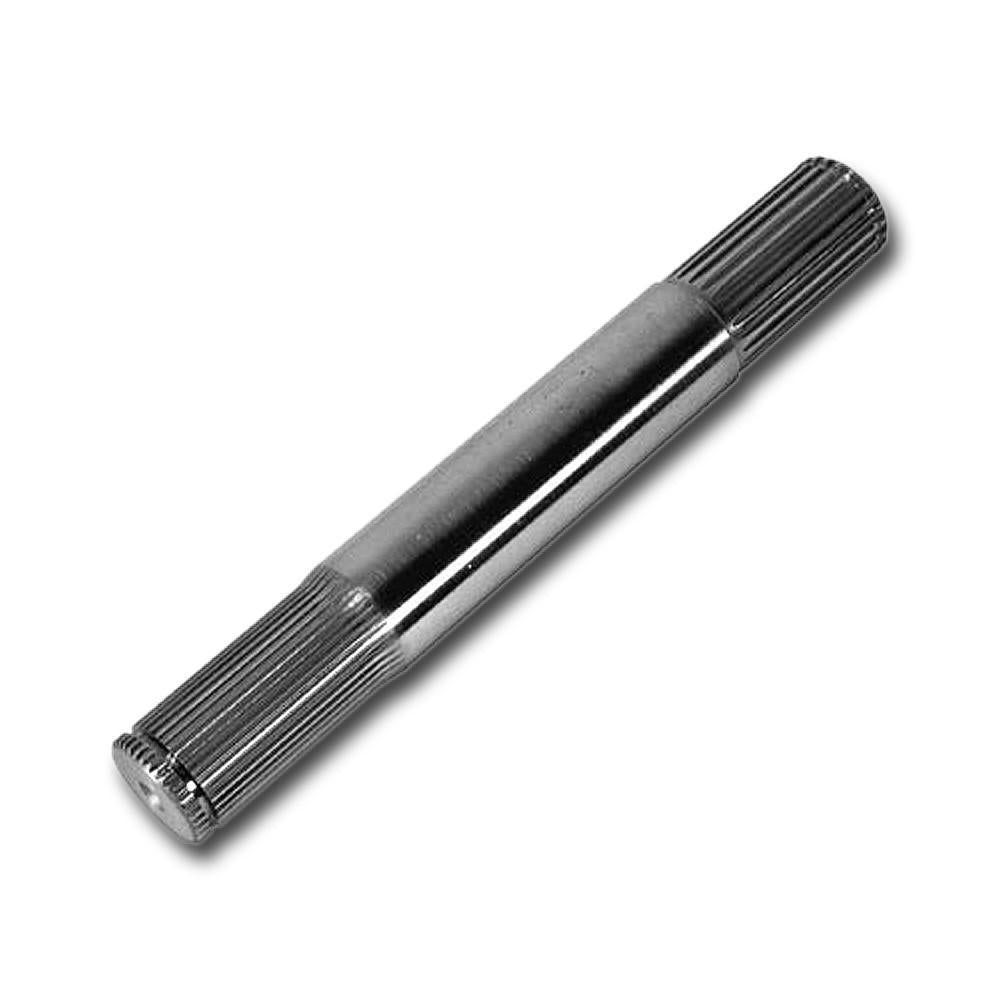
Corvette Rear Differential Output Shaft - Hardened Hi-Performance : 1997-2004 C5 & Z06
Regular price
$ 61095
$ 610.95
Regular price
$ 70000
$ 700.00
Sale price
$ 61095
$ 610.95
Save $ 89.05
/
- Free returns
- Carbon neutral
- Secure payments
- 100% Satisfaction Guarantee
- Low stock - 1 item left
- Backordered, shipping soon
The 1997 -to- 2004 C5 and Z06 Corvette have an inherent problem with weak output shafts breaking under heavy load, especially with added power and traction at the drag strip.
Strengthen your rear differential with this hardened steel 300M output shaft and don't get stuck at the track with a broke rear end.
Features:
Made from 300M "Tool Steel"
Heat treated for strength
Direct replacement stock output shaft
No modifications needed
Recommended for cars producing over 440HP or running low 12's in the 1/4 mile with Drag Radial tires or better.
Principal Design Features:
300M is a low alloy, vacuum melted, steel of very high strength. Essentially it is a modified AISI 4340 steel with silicon, vanadium and slightly greater carbon and molybdenum content than 4340. 300M has a very good combination of strength (280 to 305 ksi), toughness, fatigue strength and good ductility. It is a through hardening alloy.
Applications:
Applications for 300M steel are those that require strength in the 290 - 300 ksi range, such as aircraft landing gear, high strength bolts, auto racing and air-frame parts.
Machinability:
Machining is best accomplished with the alloy in the normalized or normalized and tempered condition. Final machining to finish tolerances is done by grinding with care due the hardness of the heat treated alloy (Rockwell C 55). It is important to do a stress relief anneal at 550 F after finish grinding.
Heat Treatment:
300M must be normalized at 1700 F before hardening. After the normalizing treatment the alloy is hardened by heating to 1600 F and oil quenching. Tempering is then done last.
Cold Working:
In the annealed or normalized condition the alloy has good ductility and can be readily cold worked by conventional methods.
Tempering:
Temper at 600 F to give a nominal 300 ksi strength.
Hardening:
300M hardens from cold working and by heat treatment. See "Tempering".
Strengthen your rear differential with this hardened steel 300M output shaft and don't get stuck at the track with a broke rear end.
Features:
Made from 300M "Tool Steel"
Heat treated for strength
Direct replacement stock output shaft
No modifications needed
Recommended for cars producing over 440HP or running low 12's in the 1/4 mile with Drag Radial tires or better.
Principal Design Features:
300M is a low alloy, vacuum melted, steel of very high strength. Essentially it is a modified AISI 4340 steel with silicon, vanadium and slightly greater carbon and molybdenum content than 4340. 300M has a very good combination of strength (280 to 305 ksi), toughness, fatigue strength and good ductility. It is a through hardening alloy.
Applications:
Applications for 300M steel are those that require strength in the 290 - 300 ksi range, such as aircraft landing gear, high strength bolts, auto racing and air-frame parts.
Machinability:
Machining is best accomplished with the alloy in the normalized or normalized and tempered condition. Final machining to finish tolerances is done by grinding with care due the hardness of the heat treated alloy (Rockwell C 55). It is important to do a stress relief anneal at 550 F after finish grinding.
Heat Treatment:
300M must be normalized at 1700 F before hardening. After the normalizing treatment the alloy is hardened by heating to 1600 F and oil quenching. Tempering is then done last.
Cold Working:
In the annealed or normalized condition the alloy has good ductility and can be readily cold worked by conventional methods.
Tempering:
Temper at 600 F to give a nominal 300 ksi strength.
Hardening:
300M hardens from cold working and by heat treatment. See "Tempering".


